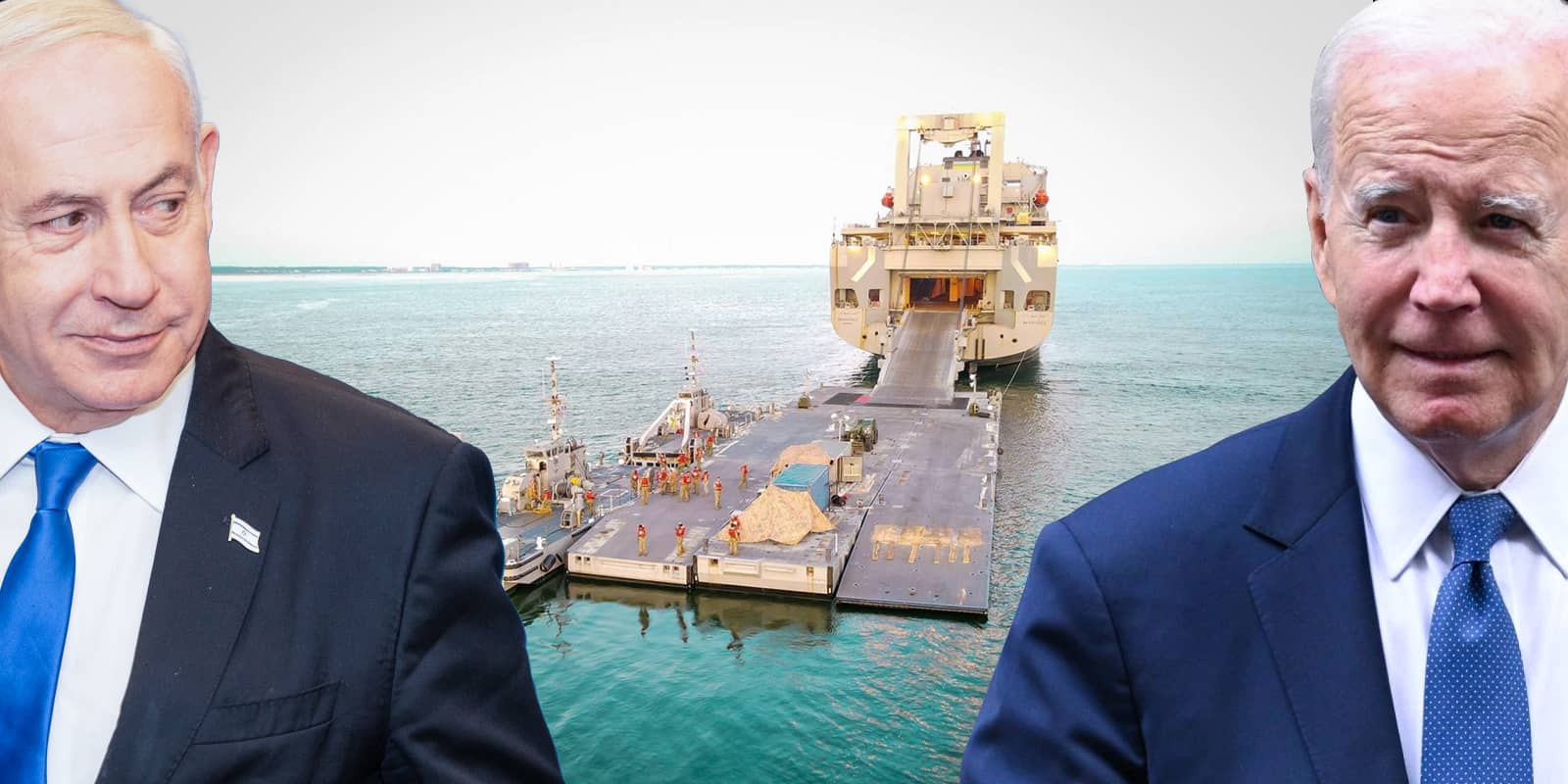Some Israelis fear US plans to build an off-shore pier to deliver humanitarian aid to Gaza could interfere with Israel’s war objectives. However, given the agreed interest in the success of the humanitarian effort, and the track record in recent years of close Israeli coordination with the US Central Command (CENTCOM), this could be a building block towards a coherent “day after” strategy, if political imperatives on both sides do not get in the way.
The announcement on March 7, 2024 by President Biden that the US plans to build a floating pier on the coast of northern Gaza came amidst growing tensions with Israel over the next stage of the war and the scale of the humanitarian crisis. The American initiative came to be read as an additional signal of American dismay with Netanyahu’s policy and some Israelis fear it may obstruct the realization of the IDF’s war objectives. Yet this is a project that Israel has previously supported and in which Cyprus is involved. It should be seen as an opportunity to re-establish US-Israeli cooperation, based on the common need to thwart Hamas raids on the supply line, and avert the disastrous consequences of famine. Moreover, the pier could be a building block towards a coherent “day after” strategy.
The Pier and Its Purpose
In his State of the Union Address (March 7, 2024) – which included, in an unprecedented manner, criticism of Israel’s policy in Gaza – President Joe Biden announced that his Administration has decided to construct on the Mediterranean coast of Gaza a floating pier which could facilitate large-scale humanitarian supplies. A briefing on the outline of the plan was given to selected journalists a few hours in advance, indicating the importance that the Administration attached to the public impact of this initiative, amidst growing criticism by the progressive left.
The Department of Defense later offered a more detailed version of the operation:
- The 7th Transportation Brigade of the US Army has been charged with putting together a Joint Logistics Over the Shore (JLOTS) system, which once assembled at the coast, would constitute a pier 550 meters long and wide enough to carry two lanes of trucks. The first ships supporting the operation sailed almost immediately after the announcement. The first US Army support ship, the General Frank S. Besson, sailed almost immediately (9 March) followed by four more Army vessels.
- Due to the shallow waters near the Gaza coast, the US navy will need to support the operation by running short ferry rounds bringing the trucks from roll-on/roll-off ships to the pier.
- Overall, some 1,000 US military personnel will be involved in the construction and operation of the pier. They are not expected to go onshore, but concerns about their safety have yet to be resolved.
- The assessment offered by the Department of Defense was that the pier would be fully operational in about 60 days, i.e., in the first half of May 2024.
- The sole source of supply to the pier will be a controlled maritime corridor from the Larnaca port in Cyprus. A barge carrying humanitarian aid sailed from Larnaca on March 12, to be offloaded in a makeshift facility of a charity – World Central Kitchen – but serving in a sense as a pilot for the military operation.
The role of Cyprus has indeed been crucial from the start: President Nikos Christodoulides raised this possibility with Israel and the US back in November 2023. His “Amalthea Initiative” arranging for inspected aid to go to Gaza was in line with ideas which had already been discussed with Israel in 2010, after the Mavi Marmara crisis, but which were then abandoned under Egyptian pressure.
The implications for Israel
Given the growing tensions between the Biden Administration and the Netanyahu government, culminating in the US abstention on UNSCR 2728, which called for an immediate ceasefire in Gaza, the announcement of the pier project came to be seen, in Israel and elsewhere, as another sign of open American displeasure with Israeli policy. Specifically, the roots of the rift have been depicted by senior Administration officials in terms of an insufficient response to the humanitarian crisis; an Israeli insistence on the need for an operation in Rafah, despite blunt American warnings; and the lack of cooperation on a plan for the day after.
However, the actual sequence of events, and the role of Cyprus, tell a different story. Israel at the level of policy making (as distinct from angry members of the public, who want to see the hostages released first) was never opposed to the flow of humanitarian aid to the population in Gaza, as long as it was thoroughly inspected and that measures could be taken to prevent Hamas from appropriating the provisions. The relationship with Cyprus has grown close since 2013, and it can be trusted to cooperate on implementing effective security controls. This leaves open the question of the technical facilitation of supply by sea, which the American plan answers: indeed, this corresponds with the prospect of an artificial island off the coast of Gaza that would serve as a port, an idea long advocated by Israel’s present Foreign Minister Israel Katz.
True, the location of the pier would be likely to draw growing numbers of Palestinians back into the northern part of the Gaza Strip, which some in Israel would prefer to leave less populated at this stage: but given the need to clear out the huge camps now in Rafah, a controlled return to the north may actually serve rather than hamper the realization of the IDF’s objective.
Moreover, in the midst of a major clash of wills at the political level, the pier project can:
- Serve to prove that Israel is doing what it can – including giving military cover to the operation – to help facilitate humanitarian aid at a crucial moment.
- Generate a necessary platform for renewed cooperation, since only the IDF can secure the onshore operations and bring the trucks to their destination.
- Return the focus to Mil-to-Mil cooperation, specifically between CENTCOM and the IDF, and away from the political dimension.
If properly managed, moreover, the American involvement in building the pier can be the point of departure for the search for a post-war regime – given Israel’s reluctance to control civic affairs in Gaza, and its opposition to allow the corrupt and incompetent Palestinian Authority do so. For this opportunity to be realized, both sides should find a way to rise above their domestic political constraints.
JISS Policy Papers are published through the generosity of the Greg Rosshandler Family.
Photos: Shutterstock, IMAGO / ZUMA Wire / U.S. Navy









 - בניית אתרים
- בניית אתרים